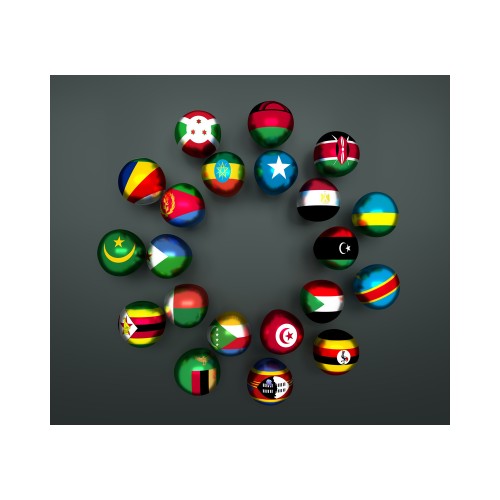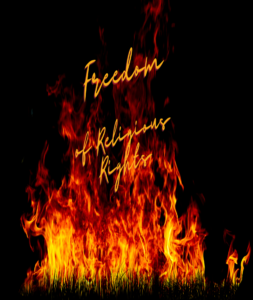Russia-Africa Summit 2023: A Steppingstone Towards a Multipolar World Order

Introduction
The Second Russia–Africa Summit and Economic Forum held in St. Petersburg in July 2023. The global significance of the Russia–Africa Summit 2023 is being a platform to address new world challenges and hearing the unheard, un-prevailed perspective.
The African countries and Russia being on a single platform augment the idea of global alienation imposed by the Global North. The summit showcased a commitment to cooperation, economic growth, and cultural exchange.
Key Highlights of the Russia-Africa Summit 2023
St. Petersburg witnessed a remarkable gathering of official delegations from 48 countries, including 27 heads of state, reflecting the importance of strengthening ties between Russia and Africa. The huge attendance suggests the longing for bilateral ties and strategic partnerships between African Countries and Russia.
The second most important outcome of the Russia-Africa Summit is stressing the need for a proper framework of strategic cooperation. During the declaration of the Russia-Africa Summit African leaders engaged in comprehensive discussions on strategic cooperation, including foreign policy coordination, trade and investment flows, and industrial collaboration. This underscores the commitment to mutual growth and prosperity.
Russia-Africa summit resulted in the adoption of declarations focused on arms race prevention inside and outside of the sovereign territories, border security, and international information security, also terrorism combat and providing a detailed action plan for the Russia–Africa Partnership Forum for 2023–2026.
Russia-Africa Summit materialized key memoranda of understanding with leading African integration associations, IGAD and ECCAS, which will further strengthen the cooperation and engagement between and across Africa.
Economic and Humanitarian Forum of the Russia-Africa Summit showcased a comprehensive agenda, encompassing political, economic, and humanitarian dimensions. Themes such as education, science, technology, and international cooperation took center stage.
Russia-Africa Summit amplified the demand for the cultural program, the cultural display celebrating African art, cinema, and music triggered the idea of cultural integration and cultural preservation. Another highlight of the Summit was the sports program which highlighted the demand for collaborations and initiatives in the field of sports, further cementing people-to-people ties.
The Second Russia–Africa Summit and Economic Forum even being in its infancy underscored the shared commitment to a fair global order based on cooperation and mutual benefit. The numerous agreements and declarations signed during the event pave the way for strengthened collaboration in various sectors, fostering economic growth and cultural exchange between Russia and Africa.
Western Media Reporting of the Second Russia-Africa Summit
The importance to voice other perspective is the nurturing ground for such non-western summits and Western media must understand that their proposed trajectories of looking at the world are limited to the idea of given Western parameters, although Western voices are the loudest hence reach to maximum ears however that quality does not qualify the popular narrative yes it quantifies it. I took four major Western news outlets and summarized their understanding of the outcome of the Russia-Africa Summit.
According to Global North, the “Second Russia-Africa Summit in St. Petersburg concluded with limited progress on key issues leaving African leaders seeking more concrete results. Russian President Vladimir Putin addressed concerns over the termination of a grain deal with promises of free grain shipments to certain African nations. However, these pledges were criticized as insufficient compared to previous commitments. The Russia-Africa Summit was attended by fewer African leaders compared to the previous gathering, reflecting concerns over Russia’s actions in Ukraine. Despite discussions on various topics including neocolonialism, sanctions, and traditional values, the event lacked significant political or economic breakthroughs. Russia’s influence in Africa has been challenged by the war in Ukraine and controversies surrounding activities like the Wagner mercenary army. The weakened economic ties and diminishing global influence have raised questions about the future trajectory of Russia-Africa relations.
Russian Perspective on the Russia-Africa Summit
In an article ahead of the second Russia-Africa Summit, written by Russian President Vladimir Putin emphasizing the strong historical and partnership relations between Russia and African countries, the article highlighted the support provided by Russia in various fields, including education, infrastructure, and self-determination. Putin underscores the importance of a non-discriminatory agenda for cooperation and the need for Africa to have a greater voice on the world stage. President Putin discussed the potential for increased trade and economic partnership, as well as Russia’s commitment to supplying grain, food products, and fertilizers to Africa. President Putin also addresses the “grain deal” with Ukraine and expresses Russia’s willingness to replace Ukrainian grain. He highlights Russia’s support for the African Union’s economic integration efforts and extends invitations for educational and cultural exchanges. Putin anticipates comprehensive agreements and joint statements to be adopted at the upcoming summit, emphasizing the commitment to further developing the Russia-Africa strategic partnership. The written message before the summit is necessary to understand the Russian version and expectations of a bilateral platform involving African countries, I above have given the summary of President Putin’s Article
What Russia-Africa Summit has achieved
After giving an overview of the Russia-Africa Summit, I provided the two contradictory perspectives regarding the event, hereby I like to evaluate the objective and subjective maxims of the Russia-Africa Bilateral Partnership for the reader to get an unbiased viewpoint.
Looking at the context and timing of the summit, the Russia-Africa summit is happening four years after the previous one, set against the backdrop of the post-pandemic world and ongoing challenges. The pandemic highlighted issues of vaccine distribution, with Western countries initially withholding vaccines from Africa. Russia used its vaccine as a diplomatic tool thus the vaccine distribution issue created a trust deficit between Western countries and African nations, adding complexity to international relations.
The second important thing worth mentioning is Russia’s involvement in the Ukraine conflict led to increased pressure from the West, including economic and financial sanctions, which instead of favoring the West demonized it because the crisis in Ukraine caused food insecurity in African nations due to global disruptions and governance challenges, affecting food prices and supplies. Moreover, Western pressure of taking a side and demand for the advocacy of the West being just in the Ukraine conflict put immense pressure on the African States. Russia-Africa Summit is a direct answer to the Western unfair demand of articulating Western perspectives in theory and practice. African nations too have decided to choose their friend and foe based on their understanding of the situation.
The idea of African aspiration of becoming global players cannot be ignored, African nations have unanimously aspired to play a more significant role on the global stage, asserting their interests and perspectives. On the other hand, Russia is also suffering from an internationally Western-imposed dilemma of neglect and discrimination, and Russia and Africa both share the same maltreatment and thus seek refuge in each other. It is true though that Russia pursues to assert itself as a significant global player, exploit the trust deficits, and as a result position itself as a reliable partner in defense, security, agriculture, and education. The second Russia-Africa summit offers Russia an opportunity to engage with Africa and demonstrate its international relevance amid global shifts in power dynamics. African nations are trailing partnerships with various countries, including Russia and China, to assert their sovereignty and pursue their interests. These partnerships offer alternatives to traditional Western alliances.
The Russia-Africa Summit was a perfect platform for Russia after announcing its exit from the grain deal, to tell the world that what its exit meant. Global hunger was not the idea the idea according to Russia was integrity and sovereignty and Russia showcased during the Russia-Africa Summit that it aims to enhance cooperation in areas like education, culture, sports, and empowerment, seeking to bolster its positive image in Africa.
African leaders needed the summit to influence discussions on global issues like the Ukraine conflict and assert their regional perspectives. The US encourages African leaders to seek alternative viewpoints on the Ukraine conflict, potentially impacting their stance on international matters. Russia’s involvement in the Ukraine conflict has led to increased pressure from the West, including economic sanctions, impacting Africa due to disruptions in food supplies and governance challenges. Africa wants to address the issue by their understanding and Western pressure of assimilation is not welcome anymore. Russia aims to maintain economic ties with African countries, particularly in agriculture, food security, and potentially exploring alternatives to the grain deal. Russia sees Africa as crucial for compensating losses from sanctions and restrictions, and discussions may include deepening economic relationships.
The most important point to be marked here is the future of the Wagner Group and its role in Africa. Africa has seen the French Foreign Legion in a different frame of reference, but the presence of the Wagner Group is influenced by internal dynamics, security concerns, and geopolitical strategy. The Wagner Group’s presence in multiple African countries raises security concerns and influences regional dynamics and, in my opinion, will be a direct threat to Western hegemony in Africa. The future of the Wagner Group remains uncertain, but its presence in Africa serves Russia’s interests in extending influence and securing economic gains through shifting the power and security structure in Africa.
Conclusion
According to Western media, Russia-Africa Summit cannot be considered a success but that lies in the definition of success regarding an expected particular outcome .For the West, the summit was just about pledges, but summits usually are about bilateral pledges and promises. What Russia has achieved is a physical manifestation of the idea that the world is desperately looking for alternatives. The question of who will fill the vacuum created by self-serving Western policies is only a matter of time, nonetheless, the huge gatherings like Russia-Africa Summit, BRICS, and alike should be taken as a clear sign of separation from Western rhetoric. Whether or not the pledges got materialized is a secondary thing, the primary thing to be understood and internalized is that the ideological Global South has had enough of the dictatorship of the Global North.





